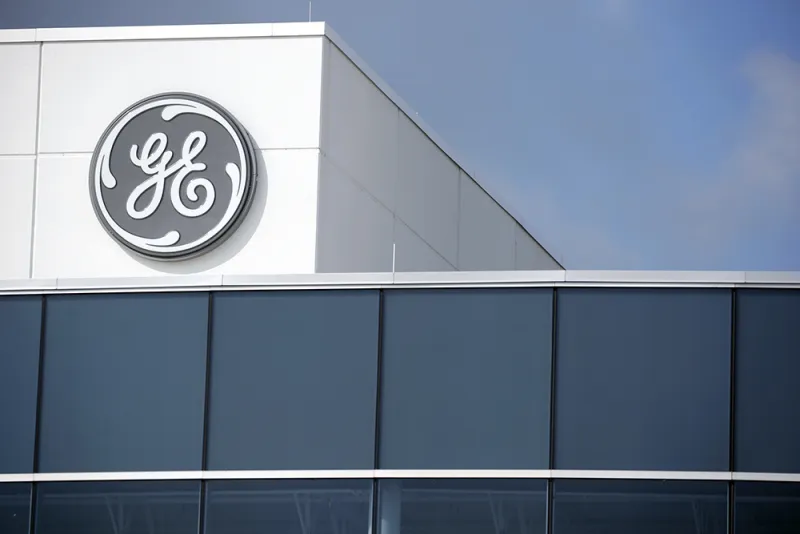The man who blew the whistle on Bernie Madoff’s massive Ponzi fraud is back with an even bigger claim.
Harry Markopolos revealed Thursday that he and partner John McPherson, who refer to themselves as the Fraud Investigators Team, have set their sights on General Electric and are alleging that the firm has engaged in accounting fraud by hiding $29 billion in long-term care insurance losses and another $9.1 billion of losses from its 2017 investment in oilfield services company Baker Hughes.
“GE’s $38 billion in accounting fraud amounts to over 40 percent of GE’s market capitalization, making it far more serious than either the Enron or WorldCom accounting frauds,” the pair alleged in their 175-page report on the company.
But as the stock tanked on Thursday following the publication of the report — falling by roughly 11 percent in afternoon trading, to around $8 per share — legendary investor Stan Druckenmiller told CNBC that he bought shares amid the plunge and that he “believed” GE CEO Lawrence Culp.
According to Markopolos and his team, GE buys businesses at high prices and sells them low, which leads to massive losses. The group also claims that GE is “baking its ledgers and cooking its books.”
Markopolos disclosed in the report that the company provided the report to a “third-party” for review prior to the general public and that the entity will pay Markopolos based on a percentage of profits that result from its trading related to GE. It’s unclear what entity Markopolos provided that information to, but he referred to it as a “mid-sized, U.S.-based hedge fund” in an interview on CNBC.
For its part, GE disavowed the report Thursday.
“The claims made by Mr. Markopolos are meritless. The company has never met, spoken to or had contact with Mr. Markopolos, and we are extremely disappointed that an individual with no direct knowledge of GE would choose to make such serious and unsubstantiated claims,” the firm said in a statement. “Mr. Markopolos openly acknowledges that he is compensated by unnamed hedge funds. Such funds are financially motivated to attempt to generate short selling in a company’s stock to create unnecessary volatility.”
Markopolos’s claims are just the latest problem for the troubled conglomerate. The firm is under investigation by the Securities and Exchange Commission and the Department of Justice for potential accounting problems.
Markopolos also shared his findings with the U.S. Securities and Exchange Commission’s Whistleblower Program and the U.S. Department of Justice’s FIRREA Whistleblower Program, the report said.
Nelson Peltz’s hedge fund Trian Partners took an activist stake in GE back in 2015. According to the firm’s website, in 2018, GE shared its strategy to improve its financial position by reducing leverage and by pursuing separation from Baker Hughes over the next few years. Trian said on its website that it supports these decisions. A spokesperson for the firm declined to comment.
One of the major concerns Markopolos and his team pointed out was that the firm’s cash position is allegedly far worse than disclosed in SEC forms in 2018. The team also alleges that GE routinely changes its accounting measures, which means some of the information it does disclose cannot be compared to the previously disclosed information.
According to their report, GE only provides top-line revenue and bottom-line profits in its earnings reports, which leaves out the costs of goods sold; research and development costs; selling, general, and administrative costs; and corporate overhead allocations. Markopolos and McPherson claim that this contributes to a lack of clarity surrounding the firm’s financial position.
[II Deep Dive: Reshaped Credit Markets Are Spooking the Fed]
The group also raised concerns about GE’s long-term care insurance deals. Markopolos and McPherson used data from the National Association of Insurance Commissioners (NAIC) and AM Best Databases to find that the firm is allegedly hiding “massive loss ratios” while increasing dollar losses absorbed by the firm, the report said.
The report shows that Markopolos has been intrigued by GE for a long time – since the late 90s.
“Chief investment officers, portfolio managers, analysts, and directors of research would all comment on how they believed GE’s earnings numbers couldn’t be true because they always met or beat consensus earnings estimates every quarter, year after year, no matter what the economy was doing,” he wrote in the report.
According to the report, Markopolos and his team spent seven months investigating the firm.







